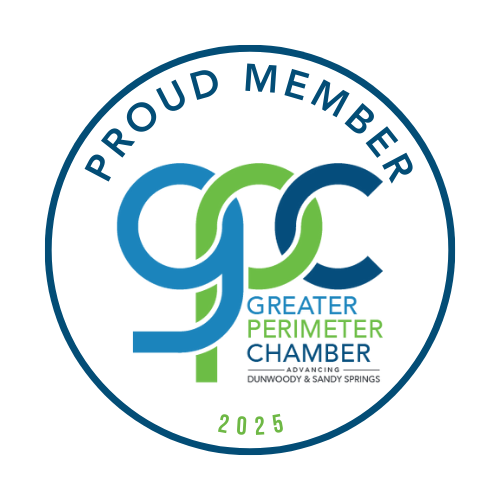Drug addiction is a growing problem in today’s world. With the rise of new drugs and substances, it is easy to fall into the trap of addiction. Addiction not only affects the individual but also the people around them. The effects of addiction are devastating, and it is essential to understand the accurate scale of this problem by exploring addiction facts and statistics.
Atlanta Recovery Place knows the addiction statistics. We understand our client’s challenges and are diligently working to help them change their lifestyles significantly. Contact our Georgia addiction recovery center today to learn more about available treatment near you.
Prevalence of drug addiction
Drug addiction is a global problem affecting millions of people worldwide. In the United States alone, approximately 21 million people have a substance abuse disorder. This figure represents 8.1% of the population aged 12 years and older. The most commonly abused substances are alcohol, tobacco, and illicit drugs.
Drug addiction is not limited to a particular age group, gender, or ethnicity. It affects people from all walks of life. The prevalence of drug addiction is higher among men than women. It is more common in young adults aged 18 to 25 years. However, addiction can affect people of any age.
Demographics and drug addiction statistics
Drug addiction is prevalent among specific demographics. People who live in poverty are more likely to suffer from addiction. Lack of education, healthcare, and employment opportunities can contribute to drug addiction. The LGBTQ+ community is also at a higher risk of addiction due to social stigmatization and discrimination.
The use of drugs and alcohol during pregnancy is a significant problem. Approximately 5.9% of pregnant women in the United States reported using illicit drugs during pregnancy. This figure includes the use of marijuana, cocaine, and prescription drugs. Drug use during pregnancy can lead to various health problems for the mother and the baby.
The economic impact of drug addiction
The economic impact of drug addiction is significant. Drug addiction costs include healthcare expenses, lost productivity, and crime-related costs. In the United States, the financial cost of drug addiction was estimated to be over $510 billion annually in 1999. Now, nearly 25 years later, that number has increased to well over 750 billion dollars annually.
Drug addiction can also lead to poverty and unemployment. People who suffer from addiction may find it challenging to maintain employment and may become dependent on social welfare programs.
Fatalities and overdose statistics
Drug addiction can have fatal consequences. Every day, more than 130 people die from an opioid overdose in the United States. In 2018, there were over 67,000 drug overdose deaths in the United States. This figure represents a 4.1% increase from the previous year.
The most commonly abused opioids are prescription painkillers, heroin, and fentanyl. In addition, the use of synthetic opioids like fentanyl has contributed to the rise in overdose deaths in recent years. Overdose deaths are preventable, and raising awareness about the dangers of drug addiction is essential.
The link between mental health and drug addiction
Drug addiction and mental health are closely linked. People with mental health disorders are more likely to develop a substance abuse disorder. Approximately 50% of people with a substance abuse disorder also have a mental health disorder.
The most common mental health disorders associated with addiction are depression, anxiety, and post-traumatic stress disorder (PTSD). People with mental health disorders may use drugs and alcohol to cope with their symptoms.
Types of Addiction Treatment
Drug addiction is a treatable condition, and several types of addiction treatment are available. The most common types of addiction treatment include detoxification, inpatient treatment, outpatient treatment, individual counseling, and group therapy.
Detoxification, or detox, is removing the drugs from the body. Detoxification can be done on an outpatient or inpatient basis, depending on the severity of the addiction. Inpatient treatment is a more intensive form of addiction treatment that involves staying at a treatment center for an extended period. Outpatient treatment is a less intensive form of addiction treatment that involves visiting a treatment center for counseling and therapy sessions.
Individual counseling and group therapy are both effective forms of addiction treatment. Individual counseling involves one-on-one sessions with a therapist, while group therapy involves sessions with people with similar addiction issues.
Treatment and Recovery Statistics
Drug addiction is treatable, but it requires a comprehensive approach. Addiction treatment may include medication-assisted treatment, psychotherapy, and support groups. In 2017, approximately 2.5 million people received treatment for a substance abuse disorder.
Recovery from addiction is a long-term process. It may take several attempts to achieve long-term recovery. Relapse is common, but it does not mean that treatment has failed. People who receive treatment for addiction have a better chance of achieving long-term recovery.
Choose Recovery with Atlanta Recovery Place
Drug addiction is a complex problem that requires a comprehensive approach, like the one available at Atlanta Recovery Place. We know addiction affects people of all ages, genders, and ethnicities, and we endeavor to treat all equitably. Our treatment programs are designed to meet individual needs and encourage growth toward personal sobriety and lifetime goals.
Addiction treatment is essential. Contact our Georgia Addiction Recovery Center today if you or someone you know is struggling with addiction. Recovery is possible with a commitment to the process and lifetime learning.









